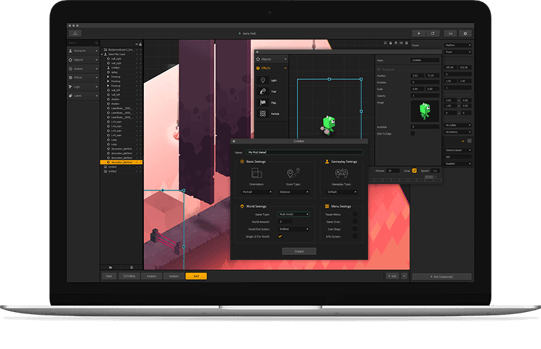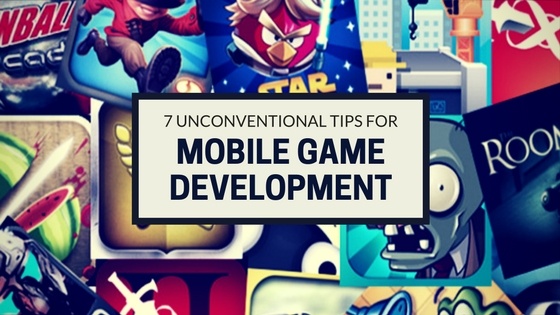1 min read
How Much Does It Cost to Develop a Mobile Game?
When you think of working on any idea the first consideration that comes to mind is the cost involved in the execution. Mobile game development is a...

The global gaming industry will likely be valued at 128.5 Billion by 2020 with mobile acquiring over 50% percent of the market share. With innovative technologies like augmented reality and virtual reality in the picture, these predictions are likely to tilt further in favor of the mobile industry. Mobile technologies have evolved drastically over the past few years. Innovations in this space have covered many limitations which previously loomed in the mobile app market. Problems like heating issues, limited storage, processing limits, battery issues etc. are all being either resolved or at least the situation has improved dramatically.
Read more: 7 Unconventional Tips for Successful Mobile Game Development
Systematize your mobile game development with our expert framework. Get your free copy of our 6 step approach to successful mobile game development. Download eBook:
All these metrics and predictions have made mobile game development worthy of investment. Many new companies are moving towards game development in the hopes of scoring a big win. While all these trends showcase market positivity, it is not easy for people to get into this industry. Especially for the ones from a non-technical background who can’t keep up with the technical details involved in mobile game development. While the range of issues faced are incompressible in a single blog we did our best to solve one of the pressing issues – Which tool to choose for mobile game development? Here we will evaluate the top 5 mobile game development tools that you can use to begin your project:
Read More: 8 Steps to Successful Mobile Game Development

Unreal Engine 4 (UE4) is the next version of UDK (Unreal Development Kit). It is brand new engine released by Epic Games. This game development kit comes with immense options for mobile, PC as well as console game development. UE4 encompasses stunning graphical capabilities like advanced dynamic lighting and a new particle system that can handle up to a million particles in a scene simultaneously. This is a definite treat for any 3D game developer.
The new Unreal Engine 4 comes with many changes from its predecessor. Unlike UDK, Unreal Engine 4 uses C++ as the scripting language, completely replacing the popular UnrealScript. Also, the Kismet is replaced with a more user-friendly Blueprint system. Because of these changes, even experienced game designers will go through a learning curve to master the updated version.
There is also a change in pricing from $19/mo to a 5% royalty whenever the game is shipped. This royalty will only apply if the earnings per game are more than $3000 per quarter. These changes have made Unreal Engine 4 free for many developers which would likely increase market penetration of the tool. Apart from Android and iOS, it can also be used for PC, Mac, Xbox One and PlayStation 4 game development. It also comes with tools to leverage virtual reality and augmented reality technologies for mobile game development. The versatility and capabilities of this tool can help you develop stunning games of any size and quality making it an ideal choice for many mobile game developers.
Read More: 7 Tips to Succeed in Your Mobile game Development Endeavour

Unity is an intuitive game development engine that offers a vast array of features for both 2D and 3D game development. It is one of the best engines for cross-platform mobile game development. You can quickly and easily port games onto Android, iOS, Windows Phone 8, and BlackBerry platforms. Unity supports assets from major 3D applications like 3ds Max, Maya, Softimage, CINEMA 4D, Blender etc. With the recent release of Unity 4.3, native 2D capabilities, supporting sprites and 2D physics are also added to its design capabilities.
Though Unity integrates with all major 3D applications, there are many limitations to its editing capabilities inside the engine editor. Apart from some primitive shapes, everything has to be created using a third-party 3D application. Alternatively, you can always purchase assets from the asset library (pricing is determined by the asset author). Also, with the new 64-bit support and WebGL, Unity 5 is evidently a strong contender among the mobile game development engines.
The Unity engine comes with many pricing options. The Pro version of Unity, which is $1,500 or $75/monthly per seat and per platform. There is also a Unity 5 Personal Edition which includes many common features like Profiler, Physically-based shading, Reflection Probes etc. However, there are many qualifying criteria to get that license. For more details, you can visit the Unity pricing page.
Read More: How much does it cost to develop a mobile game?

Corona SDK is a cross-platform 2D game development kit used for games development for mobile platforms as well as Apple TV & Android TV. It uses Lua as its scripting language which is popular among game developers because of a short learning curve. Corona SDK is available for Mac as well as Windows operating systems. It comes with over 500 APIs for a range of functions from animations to networking. With real-time testing in Corona, you can easily ideate, code and validate in one go.
Another major perk of using Corona for mobile game development is its pricing. With a free plan Corona has attracted many developers and in turn, has created a huge support community. While the basic version is free, it also comes with an enterprise solution costing $79/month, and another version priced a little higher at $199/month. One downside with Corona is that it can only be used for 2D game development. It has limited to no capabilities in 3D gaming, VR or AR. If you are planning to create an AAA game then this platform might feel a little limiting.
Tutorial: Developing an Application Using Corona Framework

Amazon’s Lumberyard is a free AAA game engine which can be used for Android, iOS, PC, Xbox One and PlayStation 4. It is based on CryEngine, a game development kit developed by Crytek. With cross-platform functionality, Lumberyard provides a lot of tools to create AAA quality games. Some of its best features include full C++ source code, networking, Audiokinetic’s feature-rich sound engine, seamless integration with AWS Cloud and Twitch API. Its graphics are accelerated with a range of terrain, character, rendering and authoring tools which help to create photo-quality 3D environments at scale.
Amazon also acquired Twitch, a live-streaming and chatting social video platform with a user base of over 100 million users per month. The platform being primarily focused on video game streaming has become a critical platform for mobile and video game marketing. With a native integration developers can include social gaming features using Twitch ChatPlay, Twitch Metastream and TwitchJoinIn.
Pricing is another major competitive advantage of Lumberyard. There are no royalties or licensing fees attached to the game usage. The only cost associated with the tool is the necessary usage of AWS Cloud for online multiplayer games. But that comes with an advantage of faster development and deployment thus, proving worth the cost.
Read more: Top 5 Challenges in Mobile Game Development [With Solutions]
5. Cocos2D-x:

As the name suggests Cocos2D-x is a 2D game development kit for Android, iOS, Linux, OS X and Blackberry mobile phones. Being an open-source tool, it comes with loads of detailed documentation and community support. It is highly resource efficient in the sense that you can create games of a size as low as 1.5 MB. It uses OpenGL to render optimized 2D graphics.
This platform has evolved dramatically over the past few years and has become a preferred choice many developers around the world. Some of the popular games developed using Cocos2D-x include Badland, Clash of Kings, Hardest Game Ever 2, Contra: Evolution etc. It free pricing and library of existing resources make it a good competitor for 2D game development. Though it is a very effective tool it has limited capabilities in 3D game development. Apart from this, it is a superb game development SDK for a small to mid-size project.

Buildbox is a 2D game development engine that allows users to build simple games without any code. It offers a clean user interface where you can simply drag and drop design elements to create your very own game in no time. This can be used for both Android and iOS platform thus, it works perfectly as a cross-platform game development engine. It is a bit pricey costing $99/month or $1008/year.
It is ideal for designing simple games like ColorSwitch, The Line Zen, SKY etc. In fact, all these games were designed using BuildBox. On the contrary, the engine lacks 3D capabilities and you will have constraints in implementing features which are not available in the development console. Whether or not to choose this toolkit largely depends on your needs. Overall it is a good solution for non-programmers to create games. Note that you will need a graphic designer to create design elements in most of the cases.
Kicking off a game from scratch requires high-level technical knowledge. Hiring a mobile game development company makes sense for every person who has limited technical knowledge to begin development on their own. Creating a team from scratch also drains a lot of resources which could otherwise be spent on game marketing and further improvements. If you are looking for a mobile game development company then feel free to contact us. With a vivid experience of working with both 2D and 3D game development kits, we are ready to take a project of any scale. Contact us today for a POC or project discussion.

1 min read
When you think of working on any idea the first consideration that comes to mind is the cost involved in the execution. Mobile game development is a...
 Read More
Read More

The academic world does not stand still. It undergoes constant transformations. Skills which graduates should have to succeed in the labor market...